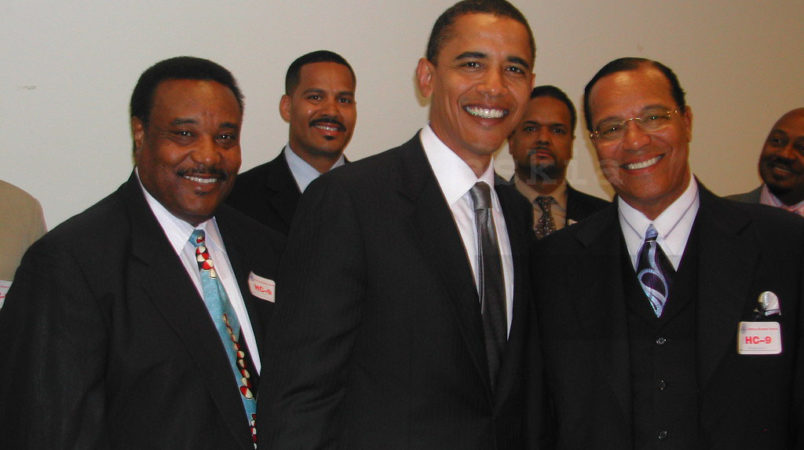It’s big news, but I haven’t yet written on it.
Why? Because I think it’s just the opening scene in a play that will be revised several times.
Actually, that’s a bad metaphor. It’s not the opening scene; the play has come out in various versions for over a decade (at least, that’s the history I’ll focus on here; it’s actually a much more long-standing issue), as Congress considers a comprehensive immigration bill.
Remember the effort made during George W. Bush’s administration? If you don’t, let’s take a little stroll down memory lane:
The [2007] bill was a compromise based largely on three previous failed immigration reform bills:
—The Secure America and Orderly Immigration Act (S. 1033), a bill proposed in May 2005 by Senators Ted Kennedy and John McCain, sometimes referred to as the “McCain-Kennedy or McKennedy Bill.”
—The Comprehensive Enforcement and Immigration Reform Act of 2005 (S. 1438), a bill proposed in July 2005 by Senators John Cornyn and Jon Kyl, sometimes referred to as the “Cornyn-Kyl Bill.”
—The Comprehensive Immigration Reform Act of 2006 (S. 2611), sponsored by Senator Arlen Specter, which was passed in the Senate in May 2006 but never passed in the House.
The bill’s sole sponsor in the Senate was Majority Leader Harry Reid, though it was crafted in large part as a result of efforts by Senators Kennedy, McCain and Kyl, along with Senator Lindsey Graham, and input from President George W. Bush, who strongly supported the bill. For that reason it was referred to in the press by various combinations of these five men’s names, most commonly “Kennedy-Kyl”. A larger group of senators was involved in creating the bill, sometimes referred to as the ‘Gang of 12’. Senator David Vitter of Louisiana led the opposition to the bill, clashing with McCain and Senator Chuck Hagel of Nebraska.
The bill never passed, and drew a lot of anger. You can read its suggested provisions here. To go into the details would take a much longer post than I plan to write, but the gist of it was that it established a path to citizenship for every single illegal immigrant then currently residing in the country, although there were certain hoops to jump through. There also were some security provisions:
The bill would have increased enforcement of the United States-Mexico border, including increasing the number of border patrol agents by 20,000 and adding another 370 miles (600 km) of fencing, among others.
And then there was the case of the Gang of Eight in 2013:
…[T]he immigration bill passed the Senate with a strong majority””68”“32, with 14 Republicans joining all Democrats. The United States House of Representatives under Speaker John Boehner did not act on the bill, however, and it expired at the end of the 113th Congress.
You can read the proposals in the bill here. Once again, it provided a long-term path to citizenship for illegal immigrants already residing here (there were many many more changes, but again they’re too numerous to detail). It also purported to increase security (someday):
The bill contains many border security measures, some of which must be implemented before illegal immigrants can adjust from the provisional status to full green card status. However, the DHS Secretary simply must submit a plan for border security within the first six months of the bill in order to initiate the provisional legal status for illegal immigrants. Senator Chuck Schumer (D-N.Y.) explained that whether or not the border is secure will have no impact on the advancement of the legalization of illegal immigrants, saying, “We’re not using border security as an excuse or a block to the path to citizenship. [The Gang of Eight] wants to make sure the border is secure, but not to use it as a barrier to prevent the 11 million from eventually gaining a path to citizenship.”
Those who criticize Boehner as spineless and unconservative probably forget that he was the person who stopped this bill, which had already passed the Senate. His stated reason:
In our conversation last week, I told the president what I have been telling him for months: the American people and their elected officials don’t trust him to enforce the law as written. Until that changes, it is going to be difficult to make progress on this issue.
Obama responded through executive orders in order to circumvent Congress.
Now, take a look at the current proposals under Trump. The emphasis is on security. The visa lottery is eliminated and family chain immigration tightened up somewhat (the latter was done in some of the previous bills, as well). A path to citizenship is provided only for people eligible for DACA.
This is pretty much what one might have predicted of Trump, since (if you were paying attention) he was always waffly on DACA. And the Democrats have done what you might expect. Nancy Pelosi considers it racist, naturally. The basic Democratic response can be summed up this way:
“Dreamers should not be held hostage to President Trump’s crusade to tear families apart and waste billions of American tax dollars on an ineffective wall,” Sen. Dick Durbin, the Illinois Democrat who has fought for protection for participants in the expiring Deferred Action for Childhood Arrivals program, said in a statement.
Of course. Trump should just give Dreamers what the Democrats want without asking for anything in exchange, right? I’m sure if the Democrats were in power, they’d have returned the favor by starting with the wall and waiting patiently for the rest.
I wonder whether Trump made this proposal knowing the Democrats would balk. I doubt he’ll make it more amenable to them in response. He might make it less. The problem may be, as with all the other immigration bills, it will be hard to get enough votes to pass it because it is almost impossible to please enough people with any bill. Most of the opinions expressed by the GOP have been supportive, but some Republicans are unhappy with it as well, and the GOP holds only a very small margin in the Senate.
So, what else is new?


